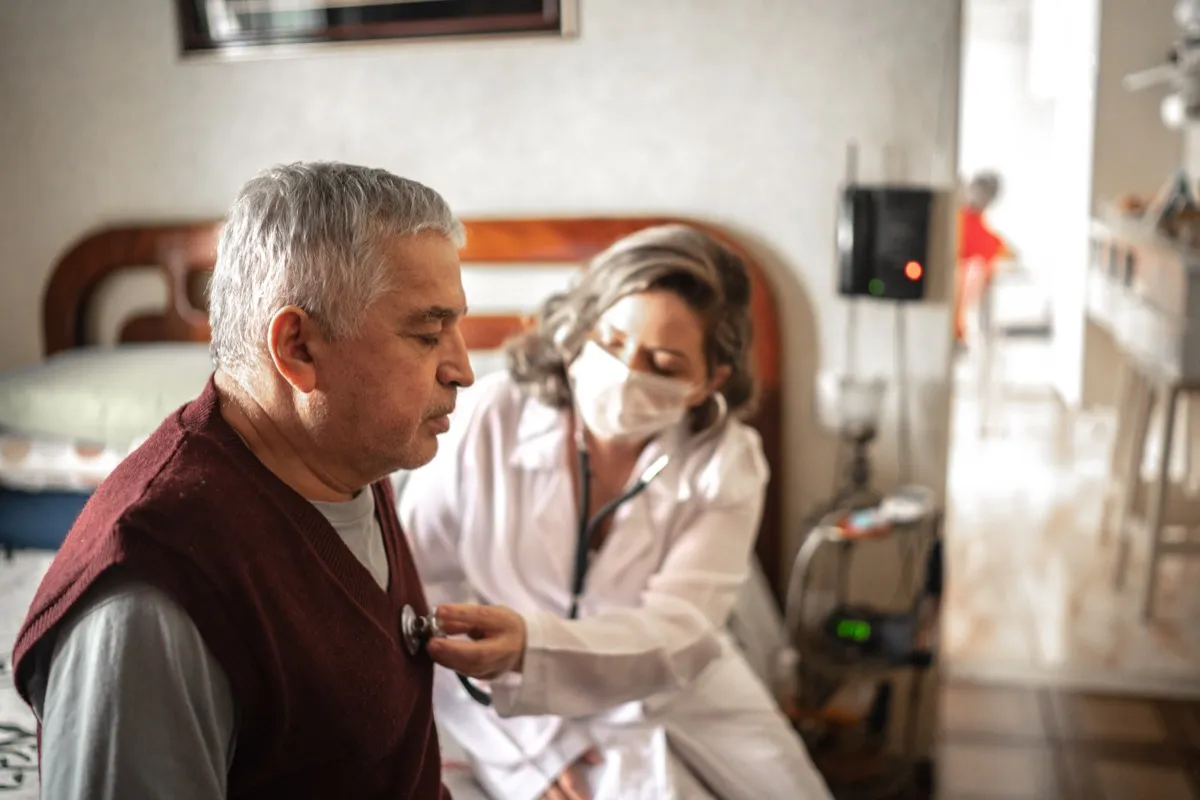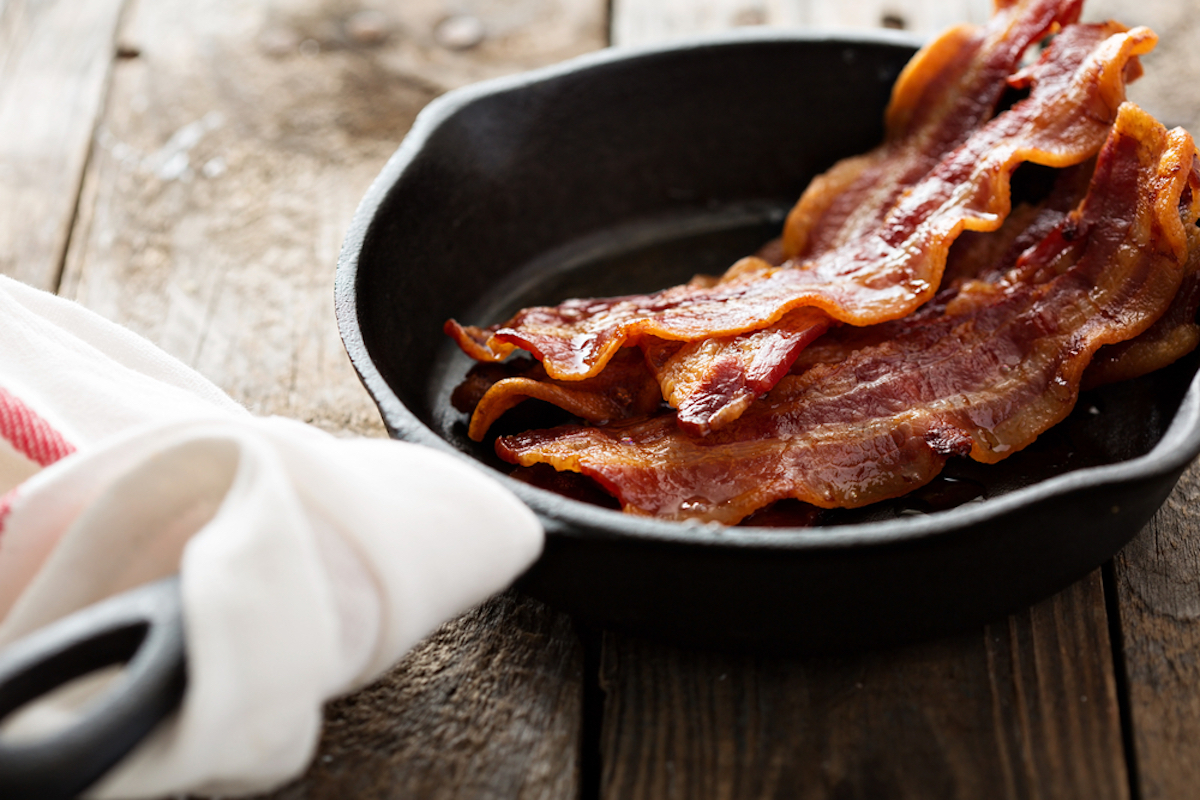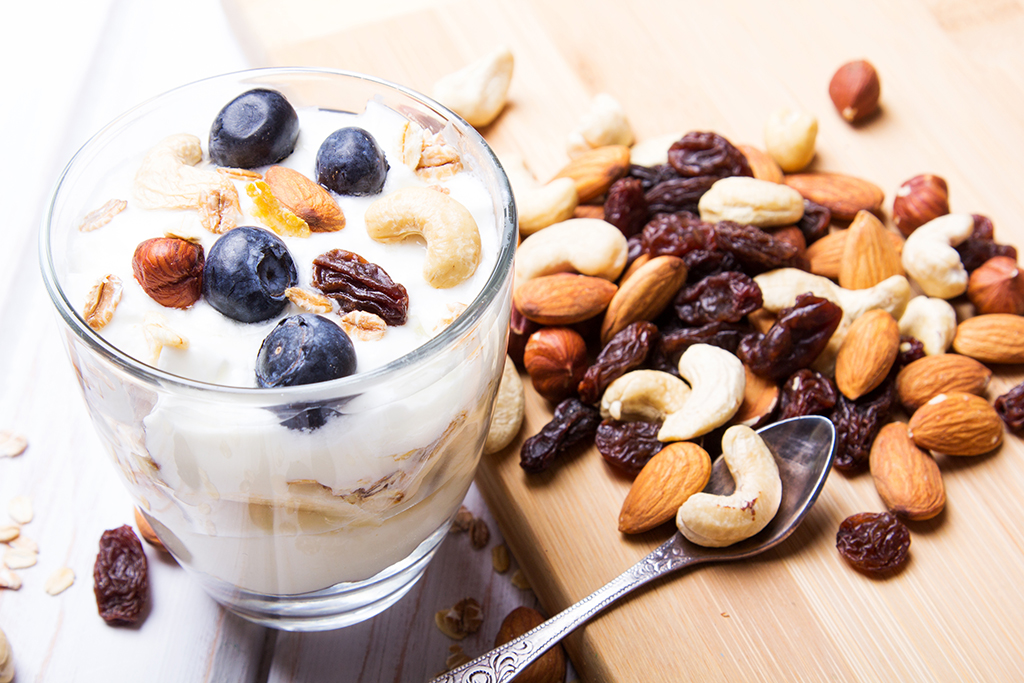RELATED: Drinking One Glass of This a Day Slashes Your Heart Disease Risk, Study Says. You know that eating a diet that’s high in saturated fats, processed meats, and added sugars can raise your cholesterol levels and thus, increase your risk of heart disease. The Centers for Disease Control and Prevention (CDC) warns that “eating lots of foods high in saturated fat and trans fat may contribute to heart disease,” while “eating foods high in fiber and low in saturated fats, trans fat, and cholesterol can help prevent high cholesterol.” But what you may not have known is that when you eat those heart-unhealthy foods can influence how much your cardiovascular health is affected.ae0fcc31ae342fd3a1346ebb1f342fcb The new study, which was published in the Endocrine Society’s Journal of Clinical Endocrinology & Metabolism on May 26, included data on 27,911 U.S. adults from the National Health and Nutrition Examination Survey (NHANES). The researchers conducted interviews with the participants on their diets over two non-consecutive days. After that, they looked for any links between consuming different fats, carbs, and proteins for breakfast versus dinner with participants’ rate of heart disease. RELATED: Eating This Food Once a Week Can Slash Your Diabetes Risk, New Study Says. No matter the meal, eating more whole carbohydrates like vegetables and grains and less meat can significantly reduce your risk of heart disease. But—as study author Ying Li, PhD, of the Harbin Medical University in Harbin, China, said in a statement—the research shows that “people who eat a plant-based dinner with more whole carbs and unsaturated fats reduced their risk of heart disease by 10 percent.” Therefore, she concluded, “meal timing along with food quality are important factors to consider when looking for ways to lower your risk of heart disease.” RELATED: For more up-to-date information, sign up for our daily newsletter. Li points out that “it’s always recommended to eat a healthy diet, especially for those at high risk for heart disease.” But, she added, the study’s findings show that “eating meat and refined carbs for breakfast instead of dinner was associated with a lower risk.” It seems that when it comes to foods that may be more risky in excess, you’re better off consuming them early in the day, rather than later on (and definitely before you go to bed). So if switch out you dinner options for something healthier, but still allow yourself a few indulgences at breakfast, your heart will thank you. Research out of the University of Alabama at Birmingham (UAB), which was published in the International Journal of Obesity in 2010, looked at how different types of foods consumed at different times affect your well-being. The researchers found that eating fat in the morning is best because your metabolism is the most active when you wake up, and the least active at night. In a statement accompanying the findings, the researchers said: “The age-old maxim ’eat breakfast like a king, lunch like a prince and dinner like a pauper’ may in fact be the best advice to follow to prevent metabolic syndrome.” They point out that metabolic syndrome is characterized by “abdominal obesity, high triglycerides, insulin resistance, and other cardiovascular disease-risk factors.” Some choices for breakfast foods with healthy fats include avocados, eggs, nuts, and yogurt—and if you’d like, throw in that bacon too. It’s certainly better than having a burger for dinner. “Humans eat a mixed diet, and … if you really want to be able to efficiently respond to mixed meals across a day, then a meal in higher fat content in the morning is a good thing,” Molly Bray, PhD, professor of epidemiology in the UAB School of Public Health, said in a statement. RELATED: If You Can’t Do This in 90 Seconds, Your Heart Is in Danger, Study Says.



